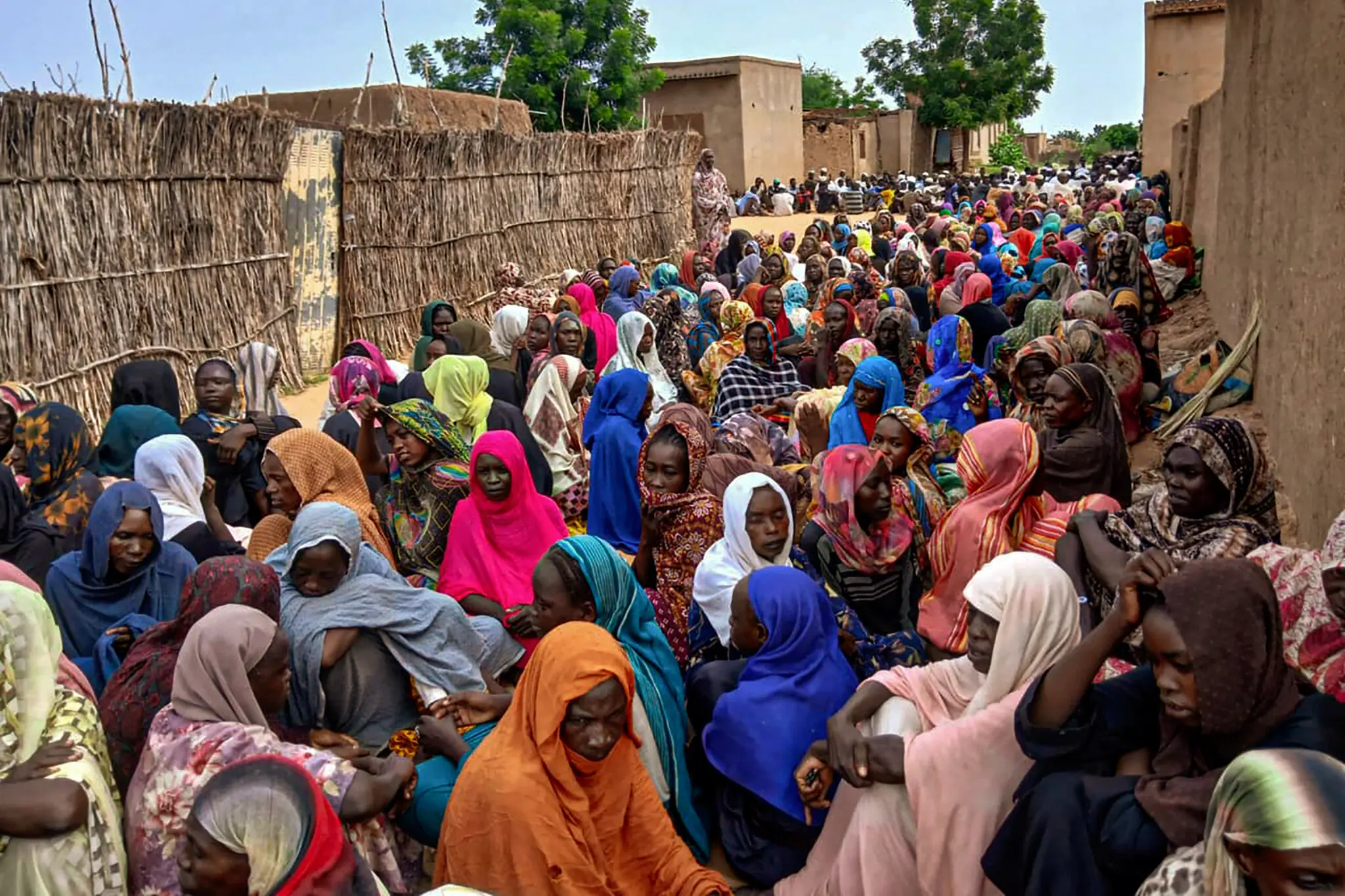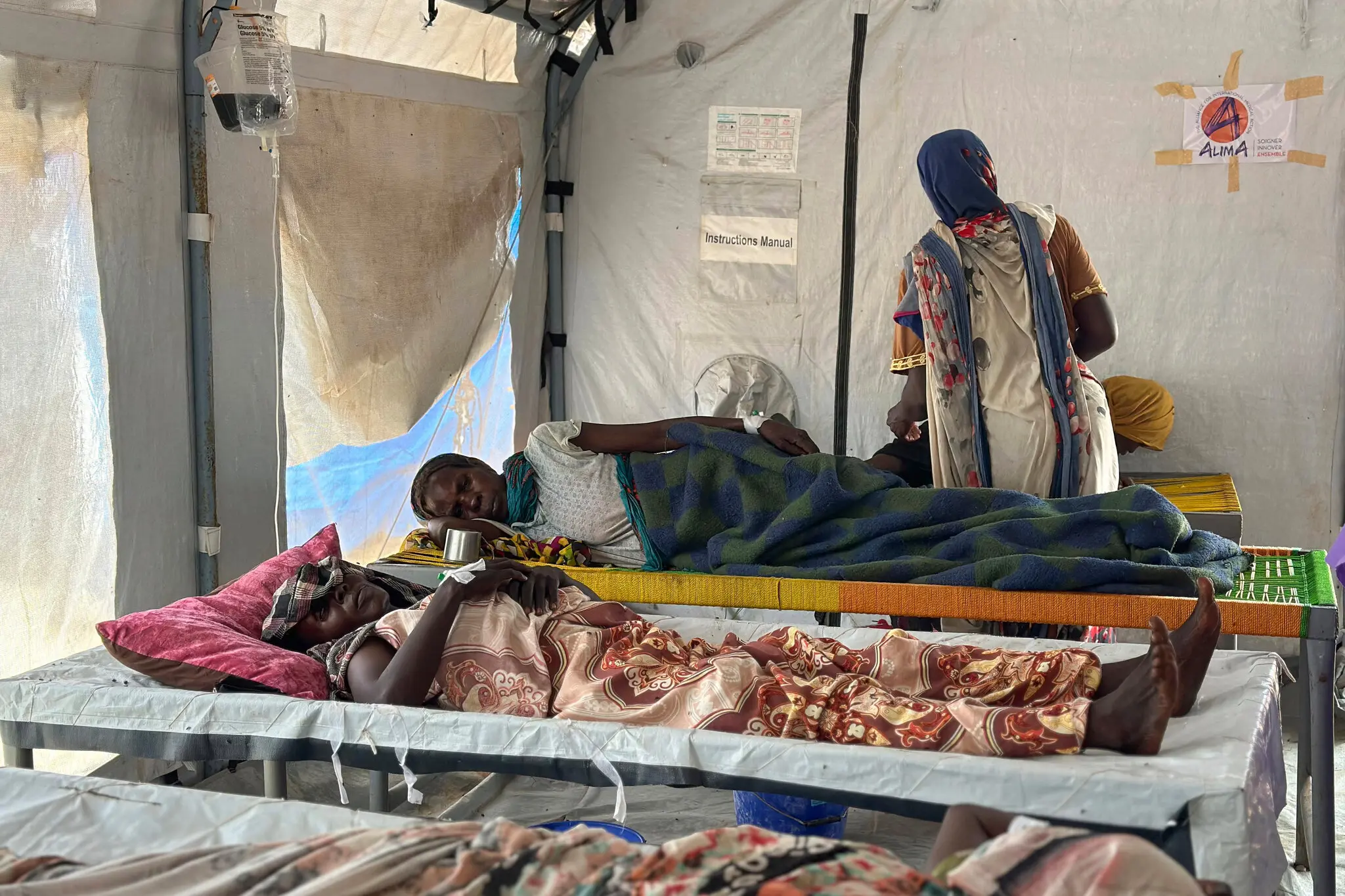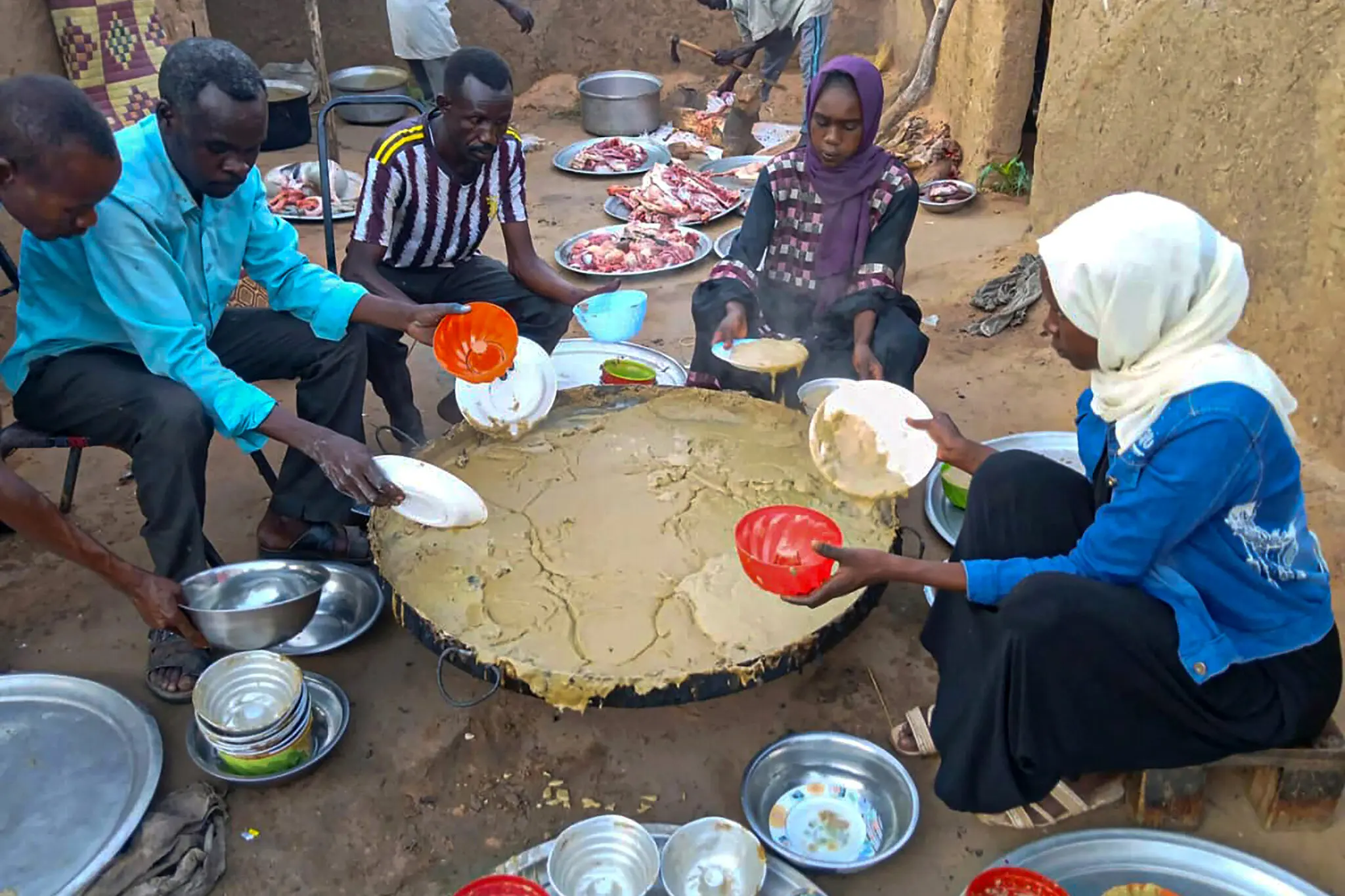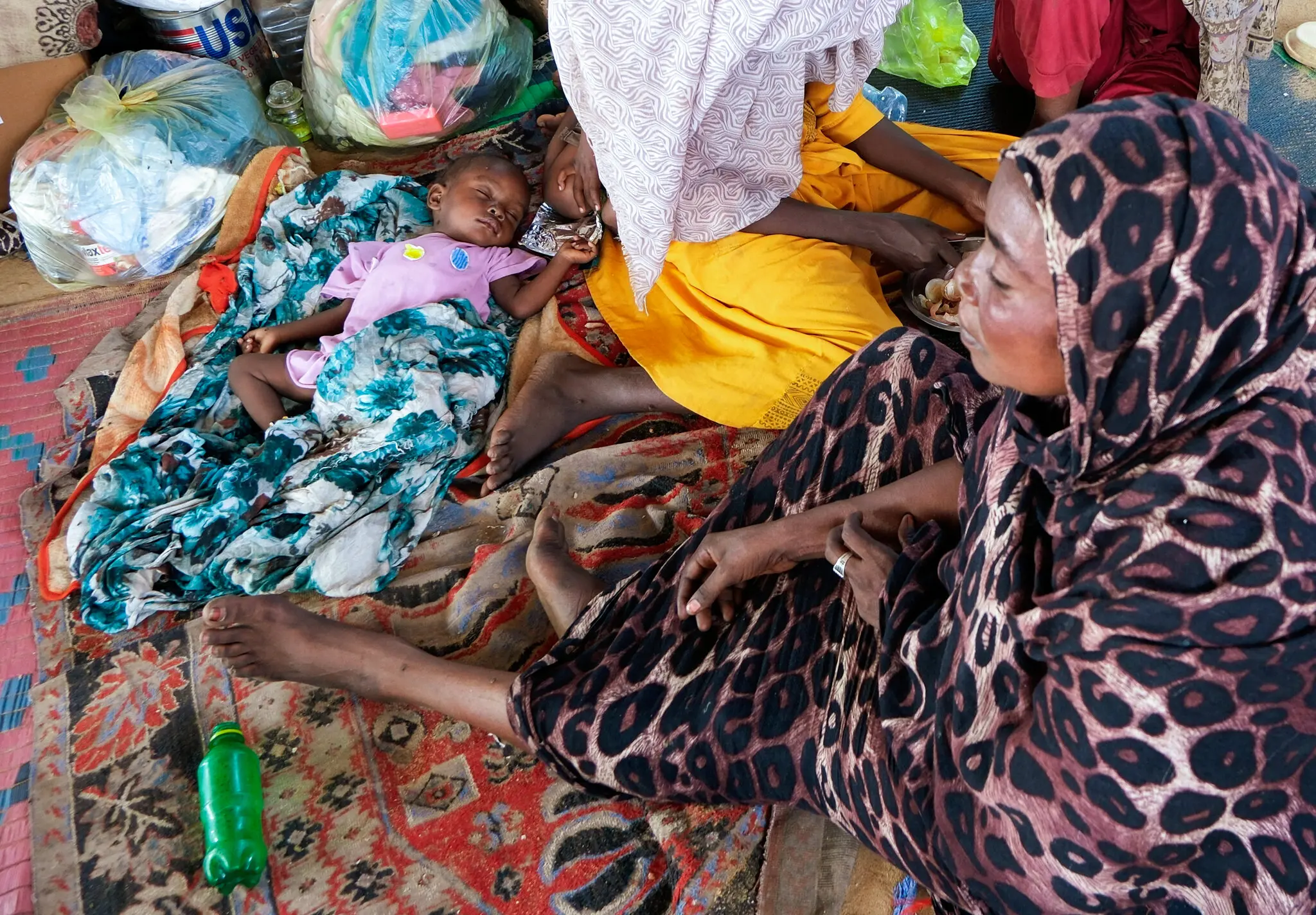In Besieged Sudanese City, Children Forced to Eat Livestock Feed
15.09.2025
Starvation, Violence and Siege: Life Inside El Fasher
Civilians Trapped in a Deadly Dilemma
More than 260,000 civilians remain trapped in El Fasher, Darfur’s last government-held city, with no safe choices left. Those who stay risk hunger, airstrikes, or bombardments, while anyone attempting to flee faces robbery, assault, or death.
The city’s only working hospital has been attacked over 30 times, leaving little more than animal feed to sustain the malnourished. Dozens of starving children arrive daily in desperate search of help.
Surviving on Animal Feed
Dr. Omar Selik, one of the few doctors still inside the city, showed his own meal during a video call: a paste of pressed peanuts normally fed to livestock. “Even we’re eating animal feed,” he said.
The improvised food source, locally known as ambaz, carries risks of fungal contamination, especially during the rainy season. Local responders say at least 18 residents have already died after eating it.

The War’s Bloodiest Battleground
For nearly 18 months, El Fasher has been under siege by the Rapid Support Forces (R.S.F.), a paramilitary group that erected a 20-mile earth wall encircling the city. Prices for basic goods have soared — one kilo of pasta costs $73.
The conflict began two years ago between Sudan’s army and the R.S.F., displacing over 12 million people and killing tens of thousands. Aid agencies now call it the largest humanitarian crisis in the world.
Since April, more than half a million people have fled El Fasher, especially after the R.S.F. massacred hundreds at the Zamzam camp nearby. Satellite images confirm the group continues extending its earthen fortifications to tighten the siege.
Hospitals Under Fire
Of about 200 medical facilities that once served El Fasher, only Al Saudi Hospital remains. It has been bombed repeatedly, including a deadly drone strike in January that killed 70 patients and staff.
Doctors now work in foxholes to survive air raids, while trying to treat waves of malnourished patients with whatever limited supplies are left. “There is no other option,” said Dr. Suleman, who continues his work despite death threats.

Fear of Atrocities
Reports indicate the R.S.F. has targeted members of the Zaghawa ethnic group as they advance into the city, raising fears of a large-scale massacre. Human rights groups warn the violence could escalate further if El Fasher falls completely.
Survivors tell harrowing stories: university lecturer Salwa Ahmed fled through streets strewn with corpses, only to later lose contact with her husband, who never returned after going back to their home.
Humanitarian Catastrophe
With no aid reaching the city for more than a year, the U.N. convoys that tried to deliver food were struck by drones, destroying trucks and killing aid workers. Cholera has begun to spread, while 14 children have died from malnutrition in just two weeks.
Meanwhile, those who attempt to smuggle food across the siege wall at night risk brutal punishments. Videos circulating on pro-R.S.F. channels show captured civilians being whipped and beaten.

International Response
Despite repeated U.N. calls to lift the siege, diplomatic progress has been minimal. The Sudanese army faces its own accusations of atrocities, but only the R.S.F. has been formally accused of genocide.
Foreign involvement has deepened the crisis. The United Arab Emirates has been accused of supplying weapons, drones, and even mercenaries to support the R.S.F., though the Emirati government denies these claims.
For now, El Fasher remains at the epicenter of Sudan’s civil war — a city where survival means eating animal feed and dodging bombs, with no end to the siege in sight.







